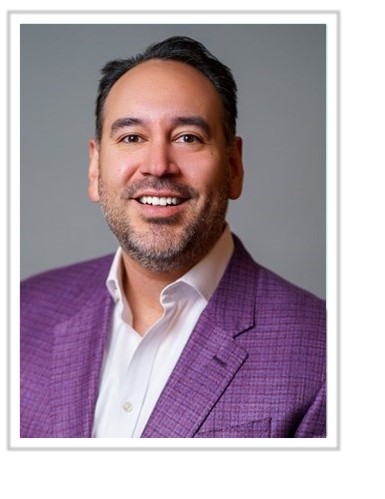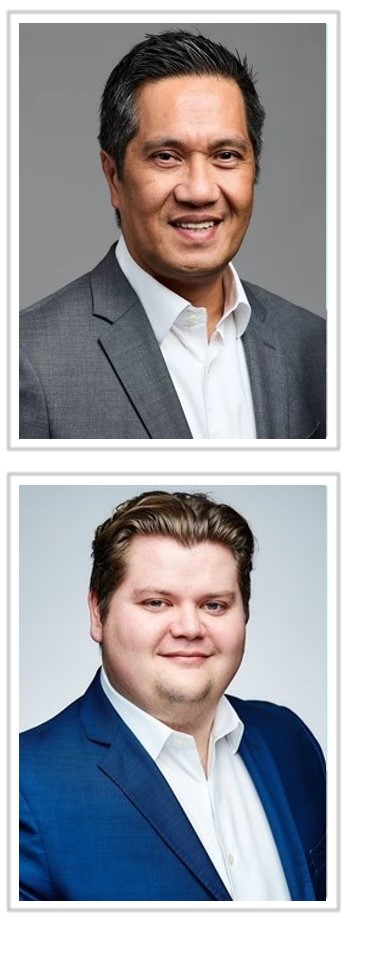I had the pleasure of moderating the panel “Leadership - Accountability in a Changing World” on Tuesday morning with Geoff Ballotti, President & CEO, Wyndham; George Limbert, President, Red Roof; Mark Laport, President, Concord Hospitality Enterprises; and Michael George, President & CEO, Crescent Hotels & Resorts. We had a great conversation and agreed that keeping an exceptional leadership team in place that embraces environmental, diversity, equality, inclusion, and social priorities is essential. Each of these companies is leaning into these issues, and the ideas brought forward were exceptional.
Below are some thoughts from other HVS leaders who attended this year’s event, with contributions from Eric Guerrero, Marcus Lee, Emil Iskandar, Brad Hoban, Luigi Major, Kirsten Smiley, and Breanna Smith.
HVS Brokerage – Eric Guerrero
 When compared to the conferences of mid-year 2022, ALIS brought less deal flow, with buyers reporting less on the table for consideration. Additionally, some sellers are still seeking Q1/Q2 2022 pricing, when low mortgage rates pushed discount rates to lows that are not supportable today. If the inventory remains as low as we are seeing it today, we are likely to see the better-quality deals bid up. If the brand is right, and the location is even better, there may be no significant discount, even with today’s higher debt costs.
When compared to the conferences of mid-year 2022, ALIS brought less deal flow, with buyers reporting less on the table for consideration. Additionally, some sellers are still seeking Q1/Q2 2022 pricing, when low mortgage rates pushed discount rates to lows that are not supportable today. If the inventory remains as low as we are seeing it today, we are likely to see the better-quality deals bid up. If the brand is right, and the location is even better, there may be no significant discount, even with today’s higher debt costs.Ultimately, transactions will remain muted in the first quarter of 2023, with a pickup expected in the latter half of the year. Development deals were discussed more, as there is a play to build during a recession, however mild it may be, and ramp up while the market recovers.
Spark by Hilton was a topic of many conversations, with talk that a conversion PIP could be around $20K per key, which seems perhaps steep for an economy-branded asset. Existing Hilton owners having to downgrade may not be too pleased, but new franchisees trying to get into Hilton could have an attractive entry point.
The HVS-brokered Old Santa Fe Inn won the under-$25M transaction of the year award, which was most certainly a highlight for our team.
HVS Asset Management – Marcus Lee
 Sentiment at the conference was upbeat, as participants and analysts speculated on the possibility and depth of an upcoming recession. The series of recent interest rate hikes was undoubtedly on most minds when discussing this outlook; however, the consensus was that cap rates have been relatively stable over the last six months and will remain so over the next year. While turbulence is expected through 2023, particularly in the second half of the year, the strength of top-line hotel performance gives market participants hope that valuations will remain stable.
Sentiment at the conference was upbeat, as participants and analysts speculated on the possibility and depth of an upcoming recession. The series of recent interest rate hikes was undoubtedly on most minds when discussing this outlook; however, the consensus was that cap rates have been relatively stable over the last six months and will remain so over the next year. While turbulence is expected through 2023, particularly in the second half of the year, the strength of top-line hotel performance gives market participants hope that valuations will remain stable.Virtually all operators expect leisure demand patterns from the post-COVID era to remain in place as consumers continue to shift from buying material products to buying experiences. Furthermore, REITs and larger asset owners have indicated that they have amassed enough cash reserves to see their portfolios through the anticipated economic uncertainty.
On the brand side, we continue to see major hotel chains launch new brands to serve both owner and consumer demands more intimately. The launch of Hilton’s Spark brand coincides with Sonesta’s Sonesta Essential launch, both seen as conversion-focused offerings for owners looking to either stay within the Hilton portfolio or move a Hampton by Hilton/Fairfield by Marriott/Holiday Inn Express to Sonesta’s growing family of brands. Brand-sponsored financial participation (such as key money and fee ramp-ups) remains strong, particularly at the full-service and luxury levels, as brands continue to compete in a crowded marketplace.
Capital Markets – Emil Iskandar and Brad Hoban
 Hotel investors have a cautiously optimistic outlook for 2023. With new debt for acquisitions being very challenging and expensive (especially for transitional assets), buyers are preferring deals where they can assume the existing debt on the hotel or getting into deals through recapitalization of the existing equity structure.
Hotel investors have a cautiously optimistic outlook for 2023. With new debt for acquisitions being very challenging and expensive (especially for transitional assets), buyers are preferring deals where they can assume the existing debt on the hotel or getting into deals through recapitalization of the existing equity structure.From a macro perspective, hotel RevPAR and EBITDA levels are anticipated to continue to grow, particularly for properties that benefit from group demand. Despite the anticipated increase in hotel operation cash flows, the high cost of debt is creating mounting pressure on owners who expect negative post-debt cash flows for the 2023 calendar year. Additionally, many hotels require large capital expenditures this year related to deferred maintenance and property improvement plans that are well overdue. For these reasons, hotel investors expect transactions to pick up in the second half of the year. It is largely believed that there will only be a nominal number of distressed deals in the market due to strong hotel fundamentals and banks being in a better position to lend than they were during the Great Financial Crisis.
Buyers are still reporting a very light acquisition pipeline. Deals where seller expectations are not adjusted to current market conditions are not being pursued. Developers are bringing back projects that were put on pause during COVID and the volatile second half of 2022. Ultimately, some believe the capital markets will stabilize in the second half of 2023. Likewise, interest rates are expected to come down to a more normalized, historical average (~5.5–6.0%).
Consulting and Valuation – Kirsten Smiley, Luigi Major, and Breanna Smith
 With RevPAR well into uncharted territory, participants have moved on to anticipating what comes next given stabilizing revenues, persistent inflationary/labor pressures, and a more challenging capital markets environment.
With RevPAR well into uncharted territory, participants have moved on to anticipating what comes next given stabilizing revenues, persistent inflationary/labor pressures, and a more challenging capital markets environment.Participants remain optimistic and expect demand and top-line revenue growth to continue in light of stabilizing occupancy levels coupled with steadily improving ADR levels. While we expect a notable increase in the first quarter compared to Q1 2022, the pace of growth will likely soften in the second and third quarters. Moreover, the recovery of commercial travel will continue to be slow and may be limited by the imminent pullback in the economy. However, the strength of leisure travel and meeting and group demand is expected to offset these commercial travel trends.
With regards to development and supply growth remaining suppressed in the near term, the next 18 to 24 months may be an ideal time to break ground on new projects given the economic cycle and forthcoming normalization of capital markets. Development in the extended-stay sector remained a popular topic of conversation. Although this supply has increased 40% over the last eight years, demand has surpassed these supply increases. Not surprisingly, executives from extended-stay brands believe there is significantly more room for this type of supply, and both Marriott and Hilton are anticipated to launch economy or midscale extended-stay brands later this year. The Sun Belt continues to be the focus of both new development and acquisitions, while markets that have historically relied on meeting and group demand and corporate travel, such as technology-focused cities, will face more scrutiny (e.g., San Francisco, Portland, Chicago, and Philadelphia).
Top-line growth is being somewhat offset by a challenging operating environment that continues to be plagued with labor shortages along with rising costs and wages. With perhaps the most attractive T12s being reached since the start of the COVID era, some market participants are considering disposing of their assets in order to take advantage of what has been an attractive transaction market. This may intensify with loan maturities coming due, as well as PIPs and any other notable events specific to a seller. Owners with assets that have attractive loan terms will likely prefer to stay put, benefit from rising cash-flow levels, and see how the next few months play out for the industry. As a result of the rise of debt and the uncertain outlook, the gap between buyer and seller expectations on pricing and value remains wide, which has caused a significant slowdown in transactions.
Many expect the impasse to be resolved in the coming months, as more data is released related to top-line performance in what appears to be a slowing economic environment, along with more clarity on inflation, interest rates, and capitalization rates. As a result of a convergence of these factors, many participants expect more opportunities to come to market at more attractive prices. Overall, 2023 is anticipated to be a year where our industry will finally benefit from a full recovery since the onset of COVID, but this may occur in the second half of the year when more clarity exists.